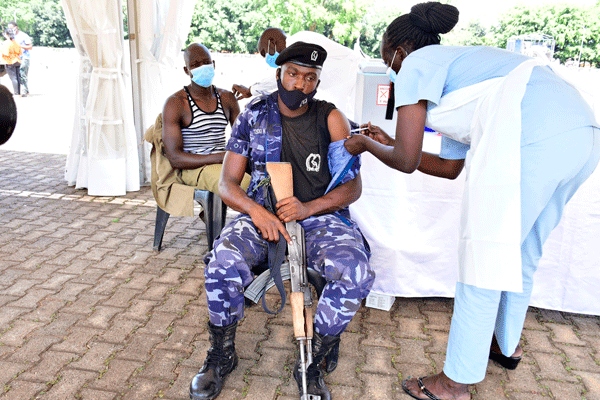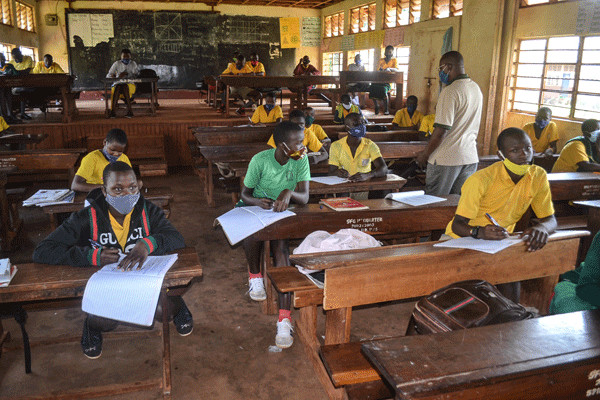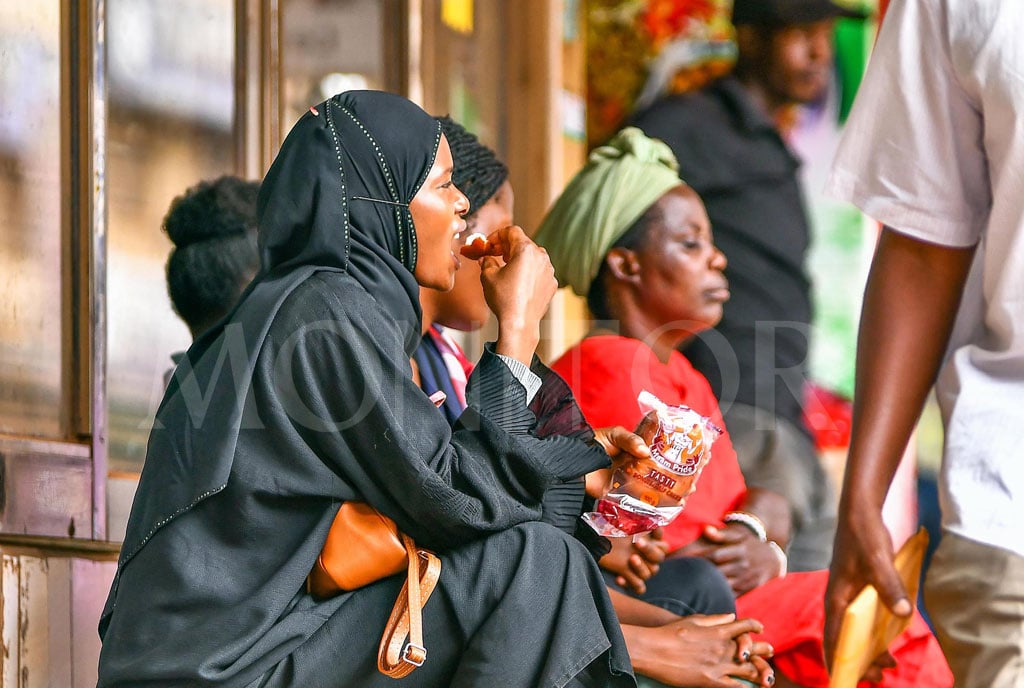Prime
What is causing the surge in coronavirus infections?

Police officers receive Covid-19 jabs at Kololo Ceremonial Grounds in Kampala recently. PHOTO/ABUBAKER LUBOWA
What you need to know:
- Health ministry suspects that the new Covid variant, Omicron, is causing the surge in infections.
As the country looks forward to full reopening of the economy and schools next week, the government has reported a total of 6,327 new cases of Covid-19 infections in the last 10 days, a number eight times higher than the 754 cases registered in the previous 10 days.
The rise in Covid-19 infections has triggered a mix of fear, uncertainty and scepticism among Ugandans.
Former presidential candidate Joseph Kabuleta and others are alleging that the reported increase in Covid-19 cases is a ploy by the Ministry of Health to lockdown the country again.
Explaining the current Covid-19 surge, Dr Charles Olaro, the director of clinical services at the Ministry of Health, told this publication that the emergence of Omicron variant and widespread violation of Covid-19 preventive measures underpin the resurgence in the country.
“What is known about Omicron is its high transmissibility. What is not yet known is the severity of infection from it. But if the number of infections is big, then the number of severe cases will also increase,” he said.
The average Covid-19 deaths and hospitalisation have not increased, according to Ministry of Health statistics. A total of eight people died of Covid-19 between December 16 and December 24, which is slightly lower than 11 deaths reported between December 6 and December 15.
Dr Jane Aceng, the Health minister, last Thursday said the government has confirmed 73 cases of the Omicron variant among incoming travellers.
But Dr Henry Kyobe, the national incident commander for Covid-19, said they don’t have enough capacity to timely confirm the specific variant in all Covid-positive samples they test.
Dr Kyobe said Omicron is likely the main cause of the resurgence because it is also the main driver of infections in neighbouring countries and across the world.
“The cases were imported through Entebbe [International Airport], Elegu, Mutukula [land border points]. So, when these infected people enter the country, there is a likelihood of the creation of micro clusters of transmission that can drive secondary local transmission,” Dr Kyobe explained.
However, Mr Kabuleeta, in a Facebook post yesterday, without giving any evidence, alleged that the Ministry of Health is “churning out their fake numbers showing a steep rise in Omicron numbers.”
“I have reliably learnt that….Ministry of Health are planning another 21-day lockdown to curb the third wave,” he said on Facebook.
But Mr Emmanuel Ainebyoona, the Ministry of Health spokesperson, dismissed Mr Kabuleta as an “attention seeker”.
Like Dr Olaro, Dr Aceng said last week that transmission should be averted because the healthcare system risks getting overwhelmed.
“The high attack rate of Omicron means that severe (8 percent) and critical (5 percent) might accrue at a rate that our respective (high dependency unit and intensive care unit) bed capacity might not sustain for long. In light of this, it becomes the responsibility of everyone to protect the window for the planned full reopening of the economy in January 2022,” Dr Aceng said,
Dr Kyobe on the other hand said: “The most important thing is to be able to test and treat those who are infected and have the population obey all the SOPs and get vaccinated.”
Dr Aceng last Thursday said since the vaccination started in March, 9.1 million Ugandans have received their first dose of Covid-19 while 3.4 million are fully-vaccinated.
The country has so far received 32.6 million doses of vaccines and of this, 20 million have been dispatched to districts and the rest (12 million) are still at National Medical Stores.




